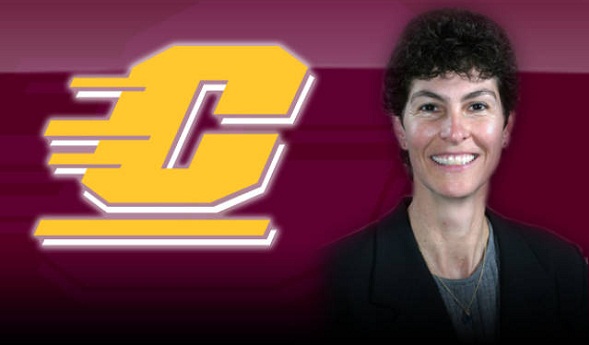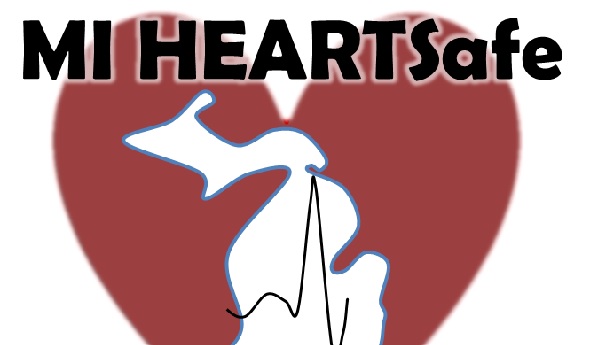
Lessons Learned Keep Paying Off
February 8, 2013
By Terri Finch Hamilton
Reprinted with permission of CMUChippewas.com
Gina Mazzolini's parents taught her to be a good person first, a good student second, and a good athlete after that. But Mazzolini says her involvement in sports at CMU taught her things that went way beyond the classroom.
"At Central, I learned women are just as good as men -- or better," says Mazzolini, assistant director at the Michigan High School Athletic Association. "I learned that if we put our minds to it, we can do anything."
A star athlete in volleyball and basketball at CMU from 1974 to 1978, Mazzolini says college sports helped her soar after the limitations for girls in high school sports in the early 1970s.
"In high school, women were always taking the back seat to men," says Mazzolini, 57. "I didn't see women in leadership positions in high school. Girls couldn't use the weight room -- we had to sneak in, then we'd get kicked out. They'd look at me and say, 'Why would you want to lift weights?'
"When the guys were done with the gym, then we could use it."
As an athlete at St. Johns High School, Mazzolini was just starting to compete competitively, she says. She won the school's first ever female athlete of the year award.
"Then I went to Central Michigan, and my teammates were all the best kids from their high school teams. Suddenly, everybody was good. And everybody we played against was good."
It was eye opening, she says.
"You learn a lot about yourself," she says. "If you can survive a practice, if you can survive playing Michigan State, you get confidence. I realized I was good. I learned how to be competitive, in a good way."
In basketball, she led the Chippewas in scoring and rebounding three straight seasons - averaging in double figures in both categories. After graduating from CMU, Mazzolini went on to teach and coach at the high school and college levels. She was inducted into the CMU Athletic Hall of Fame in 1992.
A few years later, Mazzolini received the 2009-10 Women In Sports Leadership Award by the Representative Council of the MHSAA.
So much of what she learned on the college volleyball and basketball courts prepared her for later success, Mazzolini says.
"In athletics, you can't worry about what just happened," she says. "You control your emotions, you take a deep breath, you move forward."
Good advice on any day, she says.
"You learn that you don't always win, and you learn to take defeat gracefully," she says. "Later, in your business life, you're not going to win everything, either. Sports teaches you how to deal with setbacks, how to work hard and rearrange your goals so that you do better next time.
"You learn if you work together, you can achieve amazing things."
CMUChippewas.com is running a series of stories to celebrate the 40th anniversary of Title IX legislation. Click to see more of the series.

122 Schools Recognized as HEARTSafe
May 15, 2015
The Michigan departments of Health and Human Services (MDHHS), and Education (MDE); American Heart Association (AHA); Michigan High School Athletic Association (MHSAA); and Michigan Alliance for Prevention of Sudden Cardiac Death of the Young (MAP-SCDY) have awarded 122 schools in Michigan with the MI HEARTSafe School designation which recognizes schools that are prepared to respond to cardiac emergencies.
“Sudden cardiac death claims the lives of more than 300 Michigan children and young adults between the ages of one and 39 years of age each year,” said Dr. Eden Wells, chief medical executive of MDHHS. “Implementation of CPR and an automated external defibrillator (AED) within 3-5 minutes is crucial for increasing the chance of survival. Cardiac arrest is often unexpected and frightening, and I’m pleased to see so many of our schools taking preventative measures to address this health issue.”
Between 1999 and 2009 in Michigan, there were 3,134 young individuals between 1 and 39 years of age who died of sudden cardiac death. Of those, 246 were between 5 and 19 years of age. In its second year, the MI HEARTSafe Schools designation is Michigan’s commitment to reducing the number of sudden cardiac death in our youth. Last year was the first year of the program, and 40 schools were designated in Michigan.
“MDE is proud to support MI HEARTSafe schools,” said State Superintendent Mike Flanagan. “Ensuring schools are prepared for sudden cardiac emergencies through planning, training, and AEDs is an important part of having safer learning environments for students, staff, and the community.”
Public Act 12 of 2014 requires all schools (grades kindergarten to 12) to have a cardiac emergency response plan in place. This designation recognizes 122 schools that have taken steps above and beyond to prepare to respond in the event of a cardiac emergency, and is awarded for a period of three years. Click for the list of designated schools.
“The Michigan High School Athletic Association is proud to partner with the state of Michigan to promote the MI HEARTSafe Schools program,” said Jack Roberts, executive director of the Michigan High School Athletic Association. “It’s important we all do our part to help schools prepare for unexpected emergencies to keep children in our communities safe.”
In order for a school to receive a MI HEARTSafe designation, it must perform at least one cardiac emergency response drill per year, have a written medical emergency response plan and team, have current CPR/AED certification of at least 10 percent of staff, have accessible, properly maintained and inspected AEDs with signs identifying their location and ensure pre-participation sports screening of all student athletes using the current physical and history form endorsed by the Michigan High School Athletic Association.
Schools that meet all of the requirements will be able to apply for the MI HEARTSafe School designation each year. Click for more information about the MI HEARTSafe Schools program.

